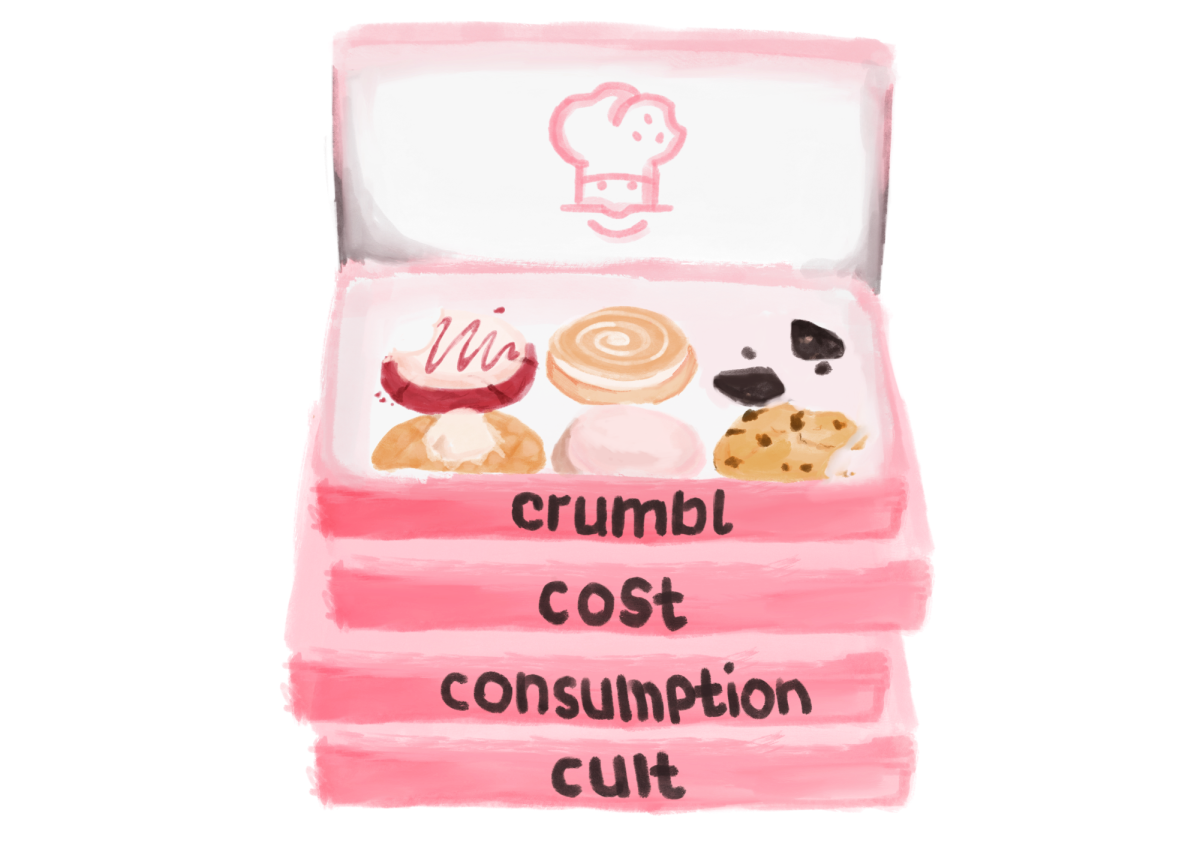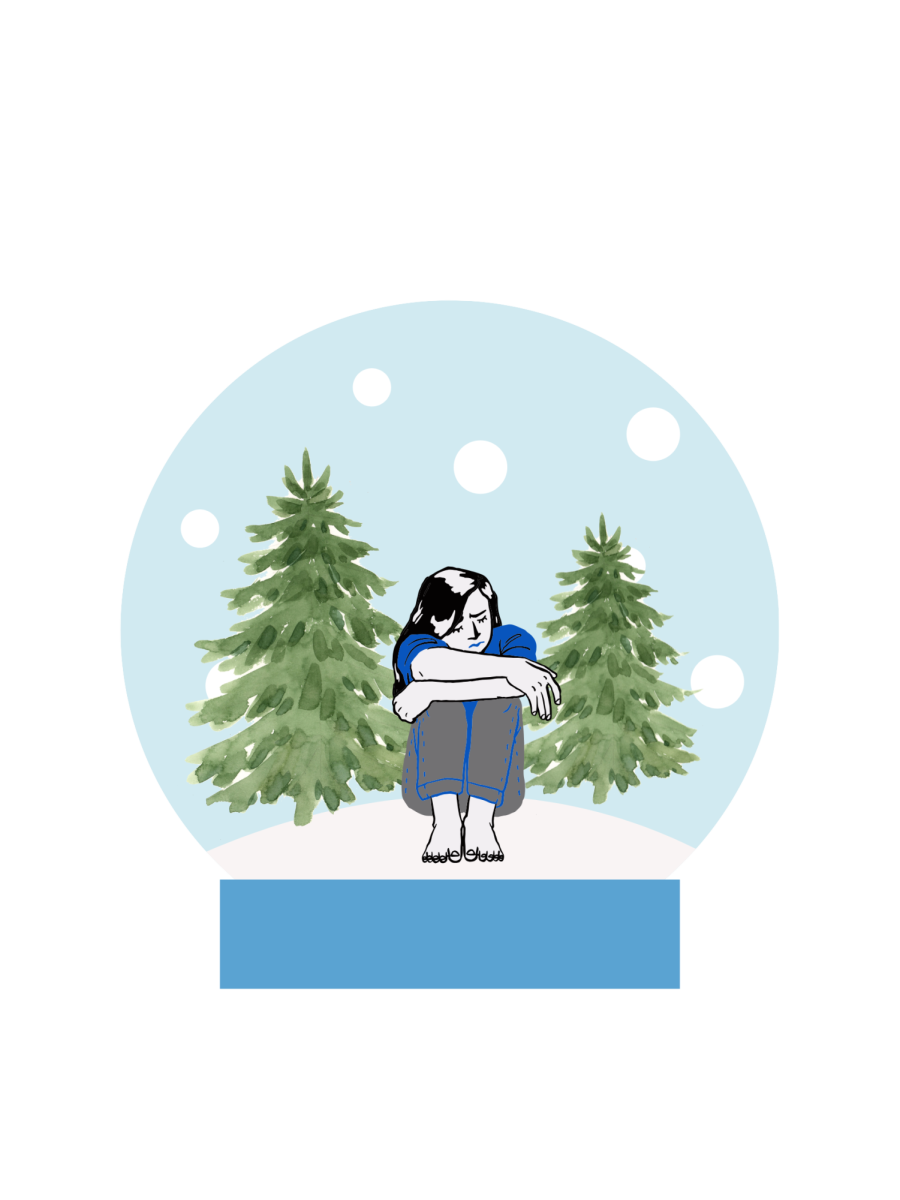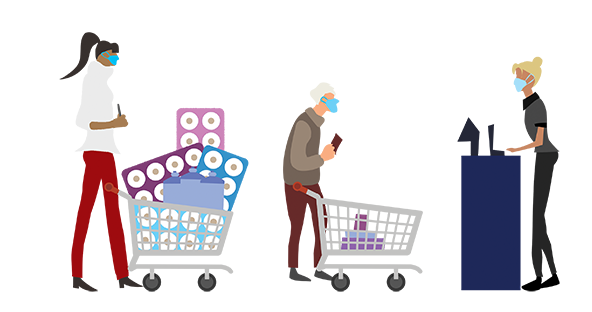The Hoarding Mentality
In times of crisis, people hoard every-day household items. What instigates the panic, and why do we normalize this behavior?
June 19, 2020
The spread of COVID-19 has dramatically altered our way of life, with people spending most of their time at home.
Clearly, the virus is terrifying in itself, but people’s responses to this pandemic can make the problem even worse.
Many have taken to storming their local grocery stores in a frantic rush to buy excess amounts of paper towels, hand sanitizer, disinfectant wipes, and especially toilet paper.
As the pandemic continues, the focus of hoarding has shifted to nonessentials such as hair products and the new shopping norm is now similar to a Black Friday rush, except that people want an abundance of personal necessities instead of TVs.
Why? Three principles may explain the hoarding behavior and resulting in shortages during the coronavirus pandemic.
The first principle involves basic economic supply and demand. Reduction in supply without a change in demand can cause shortages and rationing, as was the case during World War II with consumer goods such as sugar and coffee.
However, the current shortages are the result of not a lack of supply, but rather an excess of demand.
A significant portion of people under stay-at-home orders across the U.S. are “Doomsday-prepping”— stocking up on everything they deem “necessary” to live in complete isolation for weeks on end.
Toilet paper, being one of the basic necessities to maintain proper hygiene, has shown an increase in demand but no change in supply.
The consequence of this imbalance is a major shortage that has caused distress to shoppers and their families across the [country or globe].
A second perspective on the shortages is another principle of economics —game theory. Game theory involves understanding people’s behavior based on how they think other people will behave.
If everyone acted rationally and bought supplies when they needed them we would all be able to get what we need.
However, when a few paranoid individuals overcome by fear start buying more than they could possibly need, their actions cause a snowball effect, and more and more people follow suit.
Other people who buy not out of fear of the pandemic itself, but out of fear of running out of supplies due to the original hoarders.
“Secondary” hoarders continue to worsen the problem, and eventually, the stores’ toilet paper shelves are left bare.
A final explanation for the hoarding behavior centers on the psychology of the consumers. Most threats humans have faced in evolutionary history have been simple, single, external threats, such as a dangerous animal or a lack of food — events that we have some form of control over: we can run from the animal or forage for more food.
However, a global pandemic is a situation impossible for any individual to control. This sense of helplessness —that we are at the mercy of the virus and the people investigating it—is inherently terrifying, and tasks like shopping can help people retain a sense of control over their life.
Regardless of the reasons for hoarding during the pandemic, we should all try to remain reasonable.
We should buy only what we need. Although having a few extra necessities on hand may be a good idea, joining the thousands of frantic shoppers to scramble for the last items on the shelf is neither thoughtful nor effective. As long as we remain calm and are cognizant of ourselves and others, people will be able to get what they need for the duration of this
pandemic.



































